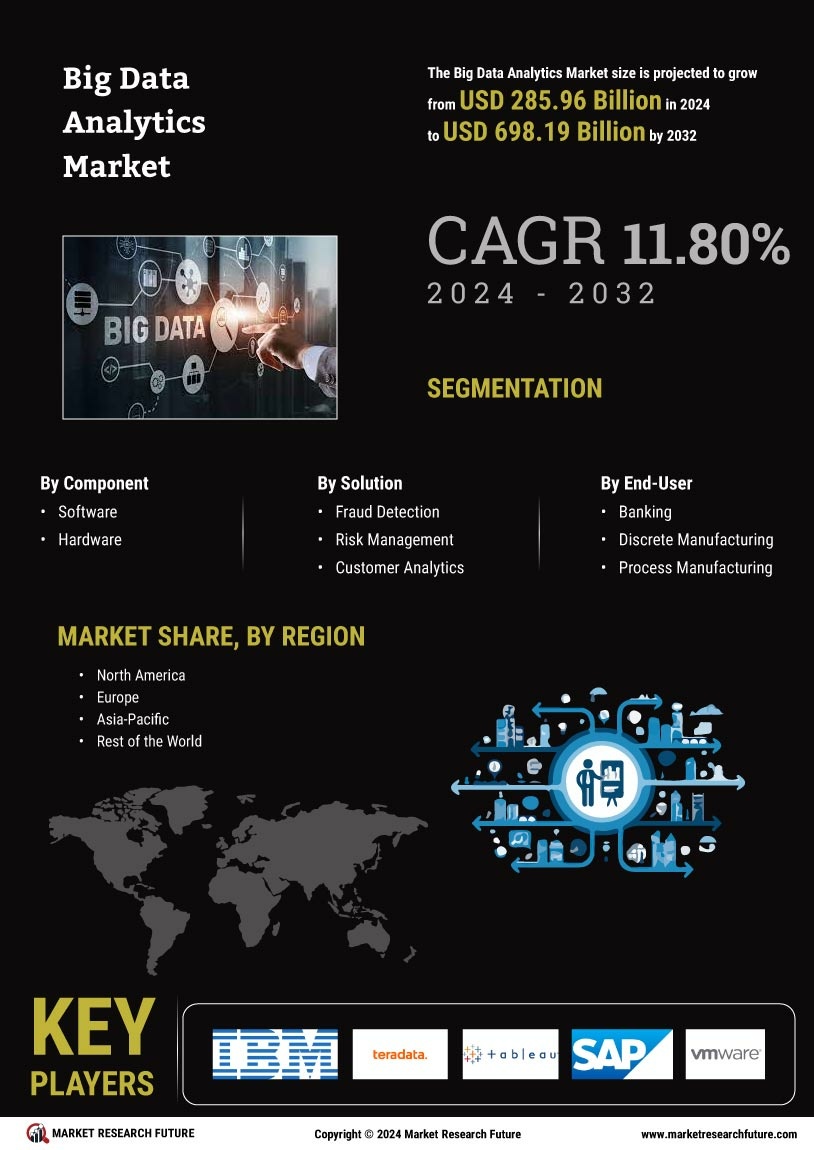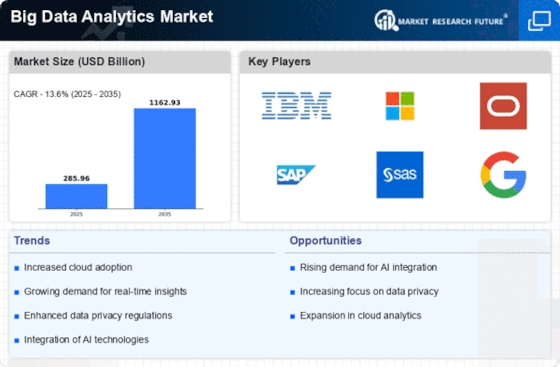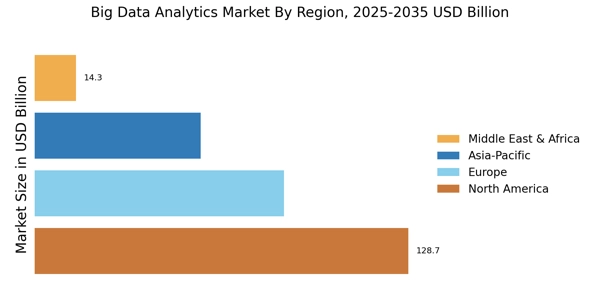Expansion of IoT and Connected Devices
The proliferation of Internet of Things (IoT) devices is significantly influencing the Big Data Analytics Market. With billions of connected devices generating vast amounts of data, organizations are compelled to adopt robust analytics solutions to harness this information effectively. The volume of data generated by IoT devices is expected to reach 79.4 zettabytes by 2025, creating a pressing need for advanced analytics capabilities. This influx of data presents both challenges and opportunities for businesses, as they seek to derive actionable insights from complex datasets. Consequently, companies are investing in big data analytics tools to enhance their operational capabilities and improve decision-making processes, thereby driving growth within the industry.
Increased Focus on Predictive Analytics
The Big Data Analytics Market is witnessing a heightened emphasis on predictive analytics, which enables organizations to forecast future trends and behaviors based on historical data. This approach is particularly valuable in sectors such as finance, healthcare, and marketing, where anticipating customer needs can lead to improved service offerings. The predictive analytics segment is expected to grow at a significant rate, with estimates suggesting it could account for over 60% of the overall big data analytics market by 2025. As businesses increasingly rely on data to inform their strategies, the demand for predictive analytics solutions is likely to escalate, further propelling the growth of the industry.
Regulatory Compliance and Data Governance
The Big Data Analytics Market is also being shaped by the growing importance of regulatory compliance and data governance. As data privacy regulations become more stringent, organizations are compelled to adopt analytics solutions that ensure compliance while maximizing data utility. The implementation of frameworks such as GDPR and CCPA has heightened awareness around data protection, prompting businesses to invest in analytics tools that facilitate compliance. This trend is expected to drive significant growth in the market, as companies seek to balance the need for data insights with the imperative of adhering to regulatory requirements. Consequently, the focus on data governance is likely to remain a key driver in the evolution of the big data analytics landscape.
Emergence of Advanced Analytics Technologies
The advent of advanced analytics technologies is reshaping the Big Data Analytics Market. Innovations such as machine learning, artificial intelligence, and natural language processing are enabling organizations to analyze complex datasets with unprecedented speed and accuracy. These technologies facilitate deeper insights and more informed decision-making, which are essential in today’s fast-paced business environment. The market for advanced analytics is projected to grow significantly, with estimates indicating it could reach USD 150 billion by 2025. As companies seek to leverage these technologies to gain a competitive edge, the integration of advanced analytics into their operations is becoming increasingly prevalent, driving growth within the industry.
Rising Demand for Data-Driven Decision Making
The Big Data Analytics Market is experiencing a notable surge in demand for data-driven decision making across various sectors. Organizations are increasingly recognizing the value of leveraging data analytics to enhance operational efficiency and drive strategic initiatives. According to recent estimates, the market for big data analytics is projected to reach USD 274 billion by 2025, reflecting a compound annual growth rate of approximately 13.2%. This trend is particularly evident in industries such as retail, healthcare, and finance, where data insights are utilized to optimize customer experiences and improve service delivery. As businesses strive to remain competitive, the integration of advanced analytics into their decision-making processes appears to be a critical factor in achieving sustainable growth.

















